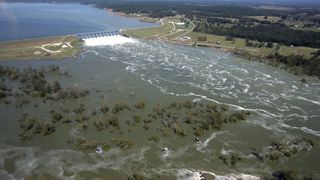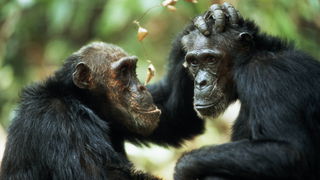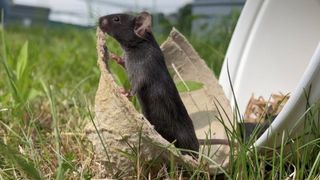news analyses
Latest about news analyses

Thousands of dams in the US are old, damaged and unable to cope with extreme weather. How bad is it?
By Sascha Pare published
Dams in the U.S. are showing signs of damage that are worsening with age and climate change. Could satellites help prioritize repairs amid budget and inspection constraints?

'Part of the evolutionary fabric of our societies': Same-sex sexual behavior in primates may be a survival strategy, study finds
By Olivia Ferrari published
A new study comparing 59 species of primates linked same-sex sexual behavior to scarce resources and more predators in socially complex species. The findings show diverse sexual behaviors are common — and likely beneficial in primates.

AI can develop 'personality' spontaneously with minimal prompting, research shows. What does that mean for how we use it?
By Drew Turney published
When large language models (LLMs) are allowed to interact without any preset goals, scientists found distinct personalities emerged by themselves.

Lab mice that 'touch grass' are less anxious — and that highlights a big problem in rodent research
By Stephanie Pappas published
Mice that experience the real world may be better models for human mental health conditions, compared with lab mice that never leave their cages, a study hints.

Even AI has trouble figuring out if text was written by AI — here's why
By Ambuj Tewari published
There are several methods for detecting whether a piece of text was written by AI. They all have limitations – and probably always will.

'Putting the servers in orbit is a stupid idea': Could data centers in space help avoid an AI energy crisis? Experts are torn.
By Carly Page published
Google’s proposal to explore space-based AI infrastructure raises fundamental questions about energy, physics and feasibility – and whether Earth has really run out of options.

'Gospel stories themselves tell of dislocation and danger': A historian describes the world Jesus was born into
By Joan Taylor published
The modern Christmas themes of peace and joy were in short supply amid the ‘dislocation and danger’ of ancient Judea – as they are in today’s fractured world too.

'It won’t be so much a ghost town as a zombie apocalypse': How AI might forever change how we use the internet
By Roland Moore-Colyer published
AI slop, chatbots and agentic AI are changing the internet, and could transform it beyond recognition, experts say.
Get the world’s most fascinating discoveries delivered straight to your inbox.
 Live Science Plus
Live Science Plus







